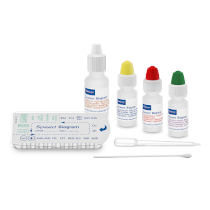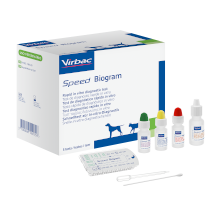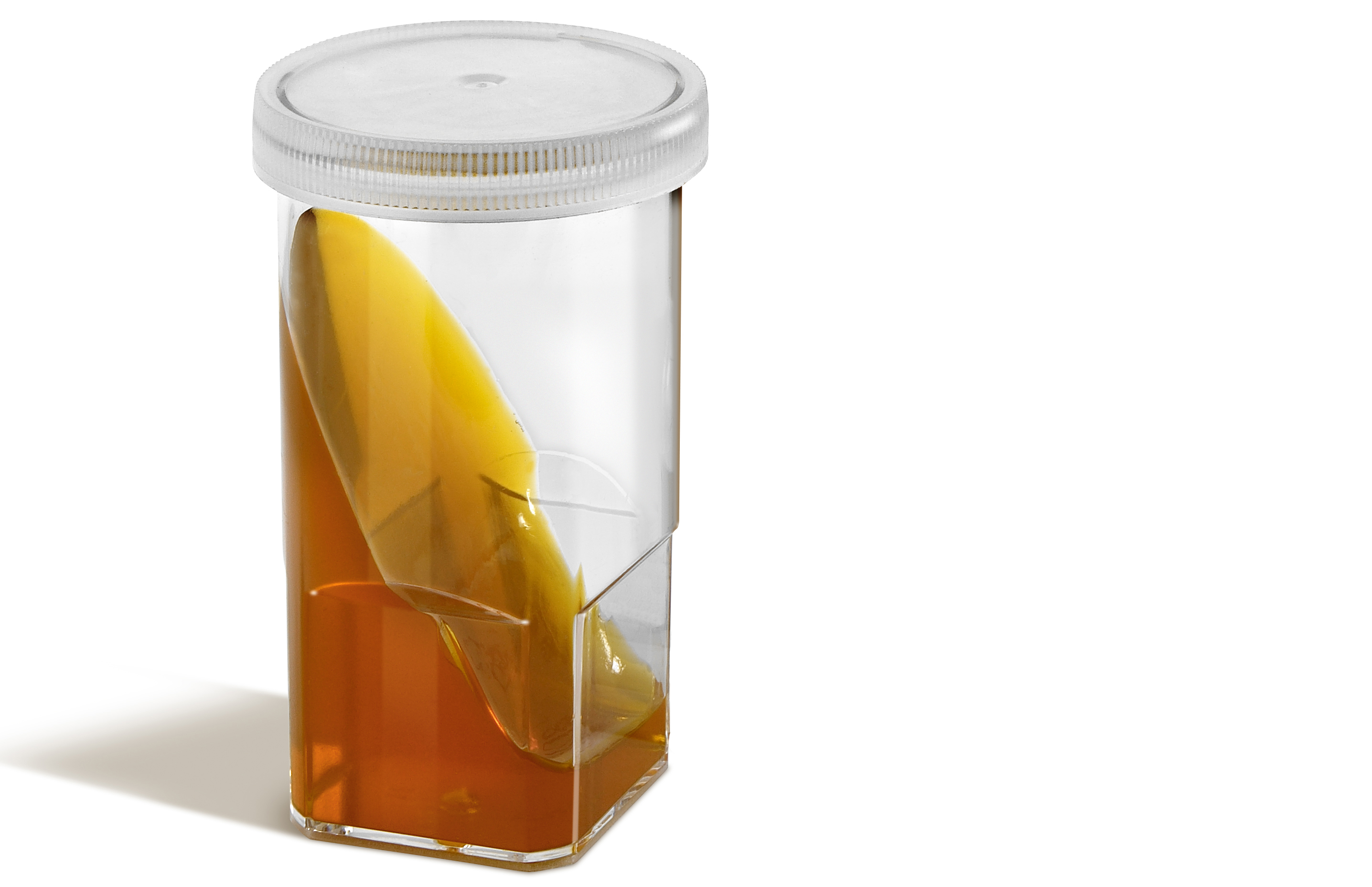
Cultures
Speed Biogram
Bacterial identification and antimicrobial resistance risk testing in skin, auricular, and urinary tract infections.
Speed Biogram is test gallery for bacterial identification and rapid detection of the risk of antibiotic resistance in skin, ear and urinary tract infections in pets.
Speed Biogram detects 6 bacteria and 1 yeast:
- Staphylococcus spp.
- Streptococcus spp.
- Enterobactéries (sauf E.coli et Proteus)
- Pseudomonas spp
- Escherichia coli
- Proteus spp.
- Malassezia
Speed Biogram tests bacterial susceptibility to 15 antibiotics: Amoxicillin, Amoxicillin+clavulanic acid, cefalexin, ceftiofur, doxycycline, flumequine, enroflowacin, marbofloxacin, spiramycin, clindamycin, neomycin, gentamycin, trimethoprim+sulfonamides, fusidic acid, polymyxin B.
For veterinary use only.
Products specifications
| Sample | Urine (by cystocentesis), skin or ear swab |
|---|---|
| Target species | Companion animals |
| Result reading | Antibiogram reading after 24h of incubation at 37°C, identification wells reading at 48h of incubation at 37°C |
| Storage | Store at the refrigerator, away from light (+2°C - 8°C) |
| Presentation | Box of 5 plates |
Why to use Speed Biogram ?
The micro-organisms involved in dermatological or urinary tract infections are various (bacteria, yeasts) and polymicrobial associations are frequent(1).
Antibiotic susceptibility testing is an indispensable tool in veterinary medicine, as for in human medicine. It is used to determine a bacterium's susceptibility to different antibiotics.
Speed Biogram offers many advantages:
- Personalized treatment : choice of an antibiotic which is effective against the micro-organism(s) identified, soon after infection onset to increase the chances of recovery and improve prognosis.
- Avoid the indiscriminate use of antibiotics, which can lead to treatment failure and contribute to the selection of resistant strains.
- Identify resistant infections to common antibiotics to prevent their spread within the household.
Visualization of test results by the owner will facilitate compliance with prescribed treatment.
When to use Speed Biogram ?
Speed Biogram is indicated in :
- Dermatology for superficial or deep pyoderma and in acute or chronic otitis.
UTI for bacterial infections
In first intention or after a therapeutic failure to adjust the antibiotic.
Instruction for use
For further details on procedure and interpretation, please refer to the instruction for use.
1. Innoculate the culture medium following the instruction of the test.
2. Innoculate the plate following the instruction of the test.
3. Seal the plate with the adhesive label and immediately incubate at 37°C.
Read the control and antibiotic wells after 24h of incubation, and read the identification wells after 48hof incubation at +37°C, +/- 2 h.
Performances of Speed Biogram
45 bacterial strains originating from feline and canine clinical otitis, pyoderma and UTI samples, have been isolated and identified on both non-selective and enriched culture agars. Antibiograms on Mueller-Hinton agar were done for each strain.
| Global agreement for bacterial identification at 24h | 95.4% |
|---|---|
| Bacterial threshold of detection | 103 UFC/ml |
| Global agreement for antibiotic sensitivity profile | 96% |
References
(1) IHRKE P.J.. Bacterial skin disease in the dog: a guide to canine pyoderma. Veterinary Learning Systems Kansas USA, 1996.
(2)PAPIEROK G, LESAINE C. 23ème Réunion Interdisciplinaire de Chimiothérapie Anti Infectieuse, Paris, Décembre 2003
(3) MADIN F. Nouvelles techniques d’analyses microbiologiques rapides utilisables par et pour le praticien, Congrès CNVSPA, Novembre 1995
Related products



